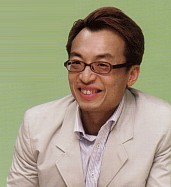|
|
<RETURN TO MAIN STORIES TOP MENU> 2003 - 2005 Stories by Mark Schumacher
 Invest Japan, No. 8, Spring 2005 Invest Japan, No. 8, Spring 2005PEOPLE IN ACTION We've Only Just Begun King of E-Commerce Gains Ground in Japan Interview with Jasper Cheung President of Amazon Japan K.K. It's no secret that Europe differs from Japan, Japan from the US, and the US from Europe. Markets and consumers differ across the entire global spectrum. But behind these differences, shoppers everywhere share common characteristics and similar needs. "Amazon's mission in Japan," says Jasper Cheung, "is no different from Amazon's mission in other nations. We want to provide consumers with the world's largest selection of goods, speedy customer service, great prices, and the timesaving conveniences of online shopping. Each day we work non-stop to fulfill that mission. But our journey in Japan has only just begun. The real journey lies ahead." Amazon Japan's online store opened in late 2000. It is the fifth of seven children in the Amazon family, along with the USA, UK, Germany, France, Canada, and China. Like its Seattle-based parent, Amazon Japan is a consumer-centric company that began as a giant online bookstore, but has since become a giant online store selling much more, including books, music, DVDs, electronics, kitchen goods, software and games. "We never considered ourselves as just a book retailer. From day one, our goal has been to build an online store where people can come to find anything they want to buy," says Cheung. "Currently we specialize in seven product categories. That number will definitely grow over time. But we are realistic. Our resources and our expertise are not unlimited, so we'll be introducing new categories in stages. You won't see us expanding into ten categories at one time, but you'll see us expanding into two or three. We want to build on our experience, not overextend ourselves." Cheung joined Amazon Japan in December 2000 and in April 2001 was appointed its president. Prior to that, he worked for over one decade in corporate finance for Procter & Gamble. Says Cheung: "After only four years here, we are now the fastest growing child in the Amazon family, and our goal of becoming the biggest revenue earner after Amazon USA is just a few years away. It was a bit of a challenge to get things in place, localize the software, get our customer center up and running, train our staff, and gain the trust of Japanese consumers. But we pursued these initial steps with great consistency, and we religiously executed our strategies without major setbacks. Today we have nearly four million active buyers in Japan and have become one of Japan's most recognized e-commerce brand names. Our free-shipping campaign on orders exceeding 1,500 yen also contributed to our acceptance among Japanese shoppers." TECHNOLOGY WITH A BRIGHT FUTURE Amazon Japan doesn't spend a penny on traditional marketing. Instead, it pours its resources into proprietary online technologies and online marketing. Its innovative web-shopping interface, browsing features, and search functions are homegrown, with virtually all the coding written by Amazon's own engineers. "We are a technology company, and our business model relies heavily on a common software platform (LINUX) shared by all Amazon sites. Localization is focused on customer-interface features, not on backend systems. For example, Japan has the world's most developed mobile-phone market, so we developed our own shopping interface for all three of Japan's mobile carriers. We decide our own marketing strategies, when and how to execute them, how many items to carry, how to present them to the customer. That is all locally driven. We run our own facilities, and handle customer service internally, as it is a crucial part of our supply chain. We need to know where the package is at every stage in the order process. Everything must be linked to provide a seamless shopping experience." Asked his advice for foreigners hoping to start a business in Japan, Cheung says: "First, do your homework. Second, respect the market and how it differs from your own home market. We've discovered that Japanese online customers are quick on trends, and much more willing to purchase goods on a pre-order basis. Our pre-order ratio here is much higher than the rest of world, especially for DVD releases, video games, and toys. Also, Japan is a very closed society, and to succeed here you need to have connections -- you need access to the right people, and you need to talk about the right message when you meet the right people. This is typically the most difficult challenge for foreign companies. Amazon had many advantages before coming here. First, as a company hoping to pursue e-commerce in Japan, we didn't face any real regulatory barriers. In fact, the Japanese e-commerce market is modeled after Europe and the US. Second, Amazon's global structure allowed us to do things quite quickly and effectively here. And we didn't do it alone. In fact, JETRO helped us in the beginning, introducing us to prospective partners and suppliers." As one might expect, Cheung is very optimistic about the future of e-commerce in Japan. "E-commerce is still a very tiny part of overall commerce in Japan, so there is much room for further growth. There are two big reasons why it will continue to grow. First, the online shopping experience will only get better, and prices will get better. People will figure it out. Second, e-commerce will never be 100% of overall commerce, but there will always be people who prefer to shop online. And we will get them online with our technologies and solutions. Will e-commerce take off in Japan? It's not even a concern for us. It's just a good opportunity." Born in Hong Kong in 1964, Cheung earned a Bachelor of Science degree in engineering in 1986 from the Hong Kong University, and soon thereafter joined Cathay Pacific Airways as an airline planning officer. Cheung and his parents expatriated to Canada in 1987, where Cheung joined Procter & Gamble as a finance manager. "I was really lucky. I arrived in Canada without a job, but soon convinced P&G Canada to hire me as a finance analyst. That was unusual, as P&G typically hires new employees straight out of the university -- and at the time I didn't even have a degree in finance." While working at P&G (Toronto), Cheung also studied for his MBA, which he received from Ontario's York University in 1990. In 1995, Cheung was re-assigned to Kobe as a regional finance manager. He arrived here soon after the Kobe earthquake, and lived in Kobe until he joined Amazon Japan in December 2000 as its finance manager. In April 2001 he was appointed its president. A bachelor, the multilingual Cheung speaks English, Cantonese, Mandarin, and Japanese. He lives in Tokyo. <RETURN TO MAIN STORIES TOP MENU>  Invest Japan, No. 7, Winter 2004 Invest Japan, No. 7, Winter 2004PEOPLE IN ACTION Sailing Uncharted Waters: Gently Rocking the Boat in Japan Interview with Elly Miller Chief Creative Director, J. Walter Thompson When Elly Miller moved to Japan in 2001, she left behind a successful nine-year career at Saatchi & Saatchi (Toronto) for an open-ended unknown future. "It really was a leap of faith. I was actually on maternity leave in Canada with my third child, thinking about the years ahead, when my husband asked if I would consider moving to Tokyo, where he had been recruited by McCann-Erickson. I thought why not, I've lived and worked in Canada all my life. I'm ready and keen for an adventure. So we moved to Tokyo, me without a job and unsure if I wanted to continue with advertising or jump into something different, yet comforted by the notion I'd figure it out along the way. Ignorance is bliss! Had I known the difficulties in this market, I probably wouldn't have been so confident about moving here. But sometimes ignorance works in your favor ? you don't worry about things you don't know about, you just plunge ahead." Miller's unknown future didn't take long to unfold. With the aid of a headhunter and "a little serendipity," Miller landed a position six months later with the Tokyo office of advertising agency J. Walter Thompson. A year later she was elevated to Chief Creative Director. Today she manages a team of 40 people handling projects for world-class clients like Nestle, Schick, Kellogg's, Shell, and Haagen-Dazs. She and her team have scored many impressive successes during the last four years, more than quadrupling the number of local and international awards of the Tokyo office, including awards from Cannes, Clio, Mobius, and New York Festival. One Strike You're Out -- Brand Attachment Weak in Japan Among international ad agencies, the mission of a creative director is to inspire, to nurture "can-do" attitudes, to motivate the team to produce fresh and compelling work, which then attracts better talent and more business for the agency. The overall goal is to grow the client's business by building a brand image that inspires long-term brand awareness and consumer loyalty. Japan's domestic ad industry, says Miller, "is largely isolated from this mindset." "Here the rules of engagement are different. First, Japan's consumers lust after newness, novelty, and innovation. The consumer's passion for excitement is captured in the popular Japanese phrase Waku Waku Doki Doki -- i.e. sensation of exciting heart-pounding expectation. This sentiment translates into incredibly short product cycles and amazingly brief shelf lives for many consumer goods. The corollary of this in advertising is the short 15-second or 30-second TV commercial, which dominates in Japan. Manufacturers who can't quickly introduce new models and styles and upgrades face failure. In Canada and America, in my experience, consumer loyalty is built over many years. Ad campaigns are not thrown away after only three to six months, as happens here. Instead you grow and evolve your campaign until you create real attachment. Secondly, brand loyalty is hard to build in a marketplace where brands change so rapidly and constantly. The more local manufacturers pursue speedy model change, the less likely they'll generate brand loyalty among consumers. Customer loyalty in Japan, moreover, is generally bestowed upon the company itself, not on any particular brand. Third, ad people outside Japan often say a great idea is universal. And this is generally true, I believe. But in Japan a great idea is not necessarily the most revered element or centerpiece of advertising campaigns. There are often other components of equal or greater importance to successful ads in Japan. In my mind, two big triggers of Japanese consumer excitement are appeals to gut intuition (to basic emotion) and appeals to tradition -- despite their great thirst for novelty and innovation, the Japanese still find tremendous comfort in tradition and the repetition of tradition." Asked her advice for foreigners hoping to start a business in Japan, Miller says: "I regret not having learned Japanese. If I knew our stay in Japan would last over four years, I'd have definitely studied the language. For now, I continue to work closely with our wonderful in-house interpreter. Everyone knows her and all feel comfortable with her, and she's doing a wonderful job conveying my enthusiasm to the team and to clients. I try to communicate always at the human level, the emotional level, to inspire passion in our common quest to be creative. If you want your team to feel passionate about their work, you yourself must be passionate. For those coming here to work in advertising, I'd say look as well to mainland Asia. The flames of innovation are burning brightly in Thailand, Hong Kong, China, and elsewhere. Those cultures are truly experimenting and mixing together influences from many different artistic fields, and I find much inspiration in the unbridled energy shining outward from greater Asia. I meet regularly with my JWT counterparts stationed in this region, and try to introduce their best ideas to my team in Japan. Yet, strategies that work wonderfully in other parts of Asia won't generally perform well in Japan without adjustment. The same holds true for Western notions. Many Western firms have learned this lesson the hard way, by trying to apply their strategies unaltered and then failing miserably. Miller was born and raised in Montreal. She moved to Toronto in 1978 to launch a career in the theater, but got sidetracked when she found work in the creative department at Ogilvy & Mather, where she helped launch an award-winning campaign for Maxwell House Coffee. Miller now resides in Tokyo with her husband and two of their three children. Their oldest daughter, 22, currently lives in Canada. "The work style here sadly pushes our family life to the outskirts. I was lamenting this to my husband, who works even longer hours than me. Somehow work has become the paragraph of our experience here in Japan, with family and love and other important things only the punctuation in between. I'd really like to change that, to achieve a better balance between private and professional." <RETURN TO MAIN STORIES TOP MENU>  Invest Japan, No. 6, Autumn 2004 Invest Japan, No. 6, Autumn 2004PEOPLE IN ACTION Outside Looking In Inside Looking Out Interview with Alejandro M. Lopez President & Representative Director Beacon Communications K.K. Years of recession have cut deeply into the advertising budgets of many firms. With less to spend, companies now rely predominantly on shorter commercials and local celebrities to pitch their image. Ad agencies have felt the pinch. Many are scrambling to restructure, regroup, and rethink. "Along the way," says Alejandro Lopez, "the art of advertising got lost." Lopez is the leader of Beacon Communications, a Tokyo-based advertising firm with some unusually creative ideas about building brand value and communicating with people. Beacon was established in 2000 by the merger of the Leo Burnett and D'Arcy agencies in Tokyo, along with a 34% investment from Dentsu. In February 2004, Lopez was appointed its president and representative director. "Some bad precedents arose during the shift from bubble to recession," continues Lopez. "Gone are the luxurious 60-second commercials, replaced by 15-second spots. It's difficult to tell a story, to touch the human spirit, to build a stronger brand image, in such a short time. One-to-one communication with the viewer has been neglected, and the enthusiasm of firms to forge an overarching brand image has weakened. It's been a tough market, but I think the pendulum is swinging the other way now, and I'm optimistic that creative advertising will resurface." There and Back Again Lopez was born and raised in Los Angeles. "I've always been interested in painting. But I came from a Hispanic family struggling to bridge the gap between blue-collar and white-collar, so art wasn't a career option. It's hard to make a living as an artist -- it's like going to Hollywood and trying to become a movie star. For me, art had to fit in with business. Luckily I was accepted at the Art Center College of Design (Pascadena), which taught me how to combine art with business, to mix creativity with work." After graduating in 1985, Lopez joined the Leo Barnett agency and was posted to its Chicago office. Two years later, Lopez gained national recognition for an award-winning campaign for Tropicana Orange Juice (Beatrice). The job offers started flooding in after that. Hoping to keep Lopez on their team, Leo Barnett offered him an assignment in Tokyo. Says Lopez: "I'd never traveled abroad, so it sounded great. But unfortunately, I wasn't ready for Japan. Japan's culture isn't easy to penetrate. It has a hard surface -- it's very easy to bounce off. If you are humble, patient, if you open yourself up, you can drip through the surface. But I was a self-absorbed young man, full of ego, and I didn't know how to appreciate Japan. I just bounced off." After three years in Tokyo, Lopez was posted to Venezuela, then later to Germany and France. During those years he led many creative projects for top global brands including Heinz, Proctor & Gamble, and Philip Morris. But when the opportunity arose to return to Japan in 1997, Lopez jumped at the chance. "I wanted to give Japan another try." Back in Japan, Lopez was appointed chief creative officer of the Tokyo operation, and when Beacon was established in 2000, Lopez played an instrumental role in building and managing the new agency. One of his first tasks was to create Brand Groups. People working in any one group -- whether a salesperson, planner, or creator -- sit alongside each other in a shared environment. "The brand is central to all we do, even the way we organize ourselves. Each office floor is dedicated to one customer cluster -- male, family, or female -- and it is here that members of the various brand groups work together to develop their ideas. The Japanese press often points to our unique infrastructure as our calling card, but they've got it wrong. At Beacon, we build our creative teams around the brand, not around the funky environment." Beacon has scored some impressive successes, including campaigns for Aiful, Attento, and Pampers. But competing for business against entrenched domestic agencies is difficult. "We don't follow the traditional yes-man mentality, so we've had some problems. To us, growing the client's business is more important than blindly serving the client. The greatest respect we can show you is to grow your business. That means we might sometimes disagree with you. If we put the client first, let the client do whatever it wants, we are neglecting our job. Our approach is a big gearshift away from Japanese agencies. Our DNA is about getting the brand to top level, about growing the client's business, and doing that with integrity and respect. It's not a game of pushing yourself on them. It's a game of attracting them to you. And when you can do that for both client and consumer, you typically achieve a marketing hit." Asked his advice for foreigners hoping to start a business in Japan, Lopez says: "Imposing oneself is absolutely wrong. Foreign firms often come here with set ideas on how to conquer Japan, but their short-sided arrogance often leads to failure. All rivers flow downward to the ocean. Not because the ocean is more powerful than the river, but because the ocean places itself below the river. Western firms often forget that. So put yourself below the rivers. Listen, learn, be humble. Another crucial concept is 'kiyotsukau,' the Japanese mindset that transforms 'I' into 'WE.' It's a refined sense of harmony and thoughtfulness not found in the West. It's like magic when you experience it. You see it in the smallest things. In the elevator, someone gets off a floor before you, and as they exit, they press the close button. When you pull up to a traffic light, the cars across the street put their lights down. When you look for KI and see it, it is the most wonderful thing -- it floors me every time." Lopez lives in Tokyo with his wife and 4-year-old son. In addition to his artistic interests in painting, sculpture and poetry, Lopez enjoys exploring the mountains, beaches, temples and shrines in the Kamakura area. "I'm always on the lookout for the hidden Japan, the forgotten Japan. And I'm always looking for those little surprises and encounters that make living here such a pleasure." He speaks multiple languages and holds a strong interest in world religions and philosophies. <RETURN TO MAIN STORIES TOP MENU>  Invest Japan, No. 5, Summer 2004 Invest Japan, No. 5, Summer 2004PEOPLE IN ACTION In the Driver's Seat Interview with Stefan Stocker President of Bosch Automotive Systems Corporation Swiss-born Stefan Stocker is no stranger to Japan. His interest was jump-started in 1973, during a short vacation to Japan. "It was a decisive trip for me. It sparked a desire to return for a much longer stay." Back home from vacation, Stocker pursued a university degree in electrical engineering, graduating in 1977. He came to Japan soon thereafter, entering the Tokyo Institute of Technology, where he received his master's degree in 1982. After graduating, Stocker returned to Europe to look for work. "I wanted to find a European company with links to Japan, one that might send me back here. Bosch (a leading German auto parts maker) had strong Japan ties, and clear strategies for the Japanese market, so I joined Bosch. Three years later they reassigned me to Japan. I've been moving back and forth ever since." Stocker's current posting to Japan began in 1997, when he joined the Bosch-owned Zexel Corporation as its managing director. Zexel was reorganized into Bosch Automotive Systems Corporation in July 2000. At the same time, Bosch transferred its automotive OEM business in Japan to the newly reorganized company. Before the transfer, OEM operations were handled by a wholly owned Japanese subsidiary, Bosch K.K. (the latter now focuses on aftermarket services). In July 2002, two other Bosch entities -- Bosch Braking Systems Co. and Bosch Electronics Corp. -- were merged into Bosch Automotive Systems Corporation, and Stocker was appointed its president. Under his stewardship, Bosch Japan has rapidly downsized and prioritized. It has successfully lowered costs, improved productivity, and closed smaller plants. It now enjoys rising sales and profitability. Setting Benchmarks for Bosch Worldwide Established in Japan in 1939, Bosch now enjoys strong relationships with all major Japanese automakers and Japanese OEMS, not just in Japan, but overseas too. "Our ties with Japanese OEMs are high priority. First, Japanese OEMs demand a level of speed, responsiveness, and quality not found in Europe or America. Second, in terms of auto technology and R&D, the Japanese are clearly among the best and getting stronger. Third, unlike the European market, Asia represents very strong growth potential. The Japanese will continue to expand into Asia with aggressiveness, and we need to be here to gain the business. Finally, one in every three cars worldwide is a Japanese car, and with automakers everywhere turning to global standardization, we believe our Japan presence is vital to our corporate health. Having operations in Japan is a great advantage -- it helps Bosch set benchmarks that impact our entire worldwide organization. In many ways, the Bosch Japan team is in the driver's seat, helping the global Bosch organization stay competitive." Says Stocker: "Our restructuring was prompted, in large part, by a desire to better meet the needs of the Japanese side. Prior to the merger, there was confusion among Japanese OEMs. They had to deal with three or four different Bosch operations, and it was difficult for them to find the right channels of access. Now, however, we offer one central window to our customers. Our merger was very much welcomed by the Japanese OEMs. It provides them with easier access to the right people inside Bosch. Now they have one window, one door, to Bosch. We also restructured for internal reasons, to realize synergies, to avoid double functions in sales and purchasing. We are also under pressure to reduce costs. But moving our production facilities from Japan to low-cost Asian nations may not be a good solution. You must be very careful to balance costs with quality, especially when dealing with Japanese OEMs. In Japan, quality is the key success factor, and Japanese OEM parts suppliers, you will notice, are not rushing aggressively into offshore production." Stocker holds some interesting views about Japanese and Western consumers. "Product cycles in Japan are much shorter than in the West, not only for auto supplies, but especially for the development and sales of consumer goods. Here you must be quick to offer new models, new styles, and continuous upgrades. Japanese consumers are almost childlike in their love of new things, new toys, and stylistic change -- and to a certain extent this holds true in other Asian nations. Perhaps that's one reason why Japanese consumer goods are so successful in Asia. Unlike Western cultures, where children are pressured to become adults at the earliest possible age, the cultures of Asia don't force adulthood on their youth. Here, people just carry their childhood into adulthood. It's accepted here. In some ways, this explains why the Japanese are so enamored by rapid change." Asked his advice for foreigners hoping to start a business in Japan, Stocker says: "If you force your concepts on the Japanese, you'll probably fail. You should make an intelligent mix of Western ideas and Japanese concepts. There is a Japanese phrase -- wakonyosai, meaning Japanese soul with western tools. I think it is generally accurate. Also don't use language as a measuring stick. Don't judge people here based only on their English language capabilities. In my own business, I would like to hire more people from Asia. For example, I'd like to see more Chinese and Thai people working alongside our Japanese staff. We should not consider ourselves an island economy. In fact, here at Bosch, we don't differentiate our thinking in terms of countries. We think instead of customer clusters, regional clusters. In other words, it's not a question of Japan or China, but rather a question of Japan and China." Stocker lives in Tokyo with his Japanese wife. Their son currently studies engineering at a German university. "One thing I really enjoy about living here," says Stocker, "is Japan's food culture -- the taste, the presentation, the yakimono (pottery), the atmosphere, the service, and the sincerity of the restaurant staff. Japan's food culture is unrivaled worldwide." Stocker also enjoys Japanese sake (nihonshu). He is an avid collector of small sake drinking cups called "guinomi." He now has around 150 guinomi in his collection. <RETURN TO MAIN STORIES TOP MENU>  Invest Japan, No. 2, 2003 Invest Japan, No. 2, 2003PEOPLE IN ACTION Creating Channels of Communication John J. Giamatteo Nortel Networks, President of Asia-Pacific Region Just 36 years old, John Giamatteo is already a seasoned leader. Posted to Asia in 1999 as managing director of sales in Korea, he became president of operations for both Korea and Japan by 2001, and early this year he was appointed president of the entire Asia-Pacific region, an area including Pakistan, India, Southeast Asia, Australia and New Zealand. Next January (2004) will be his 16th year with the company. Giamatteo lives in Tokyo with his wife and three children. Born and raised in New York, Giamatteo is a natural in the world of telecommunications. "Both my parents worked for decades for New York Telephone Company," says Giamatteo, "so around the dinner table I was constantly exposed to the topic. I didn't join the industry to follow my folks though, it just happened that way." In 1986, as an undergraduate at St. John's University in Jamaica (Queens, NY), Giamatteo joined a summer internship program with Nortel. Says Giamatteo: "The industry was booming at that time, and Nortel itself had just begun to expand outside its home market (Canada) into the United States. I was lucky to get the internship and the job. It's an exciting place to work, then and now." Over the next ten years, Giamatteo's grooming at Nortel covered the full spectrum of company operations, from sales and marketing to finance and operations, including time to get his MBA, again at St. John's. By 1997, as manager of international sales for Nortel's DMS platform, Giamatteo traveled to Europe and Asia. One thing led to another, and he accepted an offer to join the Asia team in 1999. Connecting with Asia and Connecting Asia When it comes to Internet broadband and wireless technologies, Japan and Korea are among the world's most advanced nations, explains Giamatteo. "In these two markets, the acceptance of new technologies and the pace of change are truly phenomenal." Yet, he quickly adds, market dynamics in the Asia region cover two opposite ends of the spectrum. Developing nations and advanced nations have very different needs, and this in turn requires innovation and cultural sensitivity from any firm attempting to provide connectivity on an intercity, national, regional, and global level. "There are great opportunities for multinational companies that can embrace both cultural differences and technological convergence," says Giamatteo. "I keep telling our CEO that if we can do it right here, if we can get quality issues solved here, we can succeed anywhere. In Japan and Korea, we have learned that quality, value-added technologies, and top-level customer service are the key. Before coming here, I heard a lot about Japan's demanding customers, but I didn't really appreciate how demanding they truly are. The whole relationship with the customer -- from quality and functionality to installation and post-service -- is without doubt the most vital component in expanding our business here. Also, we have found, and we are now emphasizing, the need to explore and expand partnerships with local entities - this seems to be the best way to provide the very best in services and solutions to our customers. Go-it-alone strategies don't necessarily result in the optimum solution for the customer. Let me also mention that Nortel headquarters recently (January 2003) appointed Masood Tariq to head up its new Global Alliance division, which will be responsible for strategic alliances and partnerships for Nortel Networks worldwide." Nortel's Japan office will be celebrating its 20th year in Japan this year (2003). Its first foray into the Japanese market was back in 1983, when CEO Edmund Fitzgerald pioneered Nortel's entry by establishing relations with NTT. But today, says Giamatteo, things have changed. "Back then, CEO Fitzgerald did all the legwork on a direct basis. Today, we must embrace a strategy of working with local partners. Nortel's core competencies are innovation and leading-edge technologies. But we still need local partners, those with the market know-how, those who know how to get things done. This represents a powerful proposition for our customers. Thus, a good portion of our business in Japan today is done in collaboration with local partners. It's a win-win situation." Asked to suggest advice for non-Japanese business people who come to Japan hoping to start an enterprise, Giamatteo says: "Embrace the culture, the people, how they work, and how they get things done. Be open-minded. You will have many difficulties if you only push North American or European strategies. In North America, for example, people tend to speak openly, they tell you what they think, right in your face, very boisterous. But in Japan, people are typically much less vocal. They tend not to say what they think at official meetings, which I do understand culturally. So, I conscientiously hold NOMMUNICATION* sessions with my staff at restaurants, bars, golf clubs, and non-business environments. When people adjourn to a bar for a beer, for example, people feel relaxed, they roll up their sleeves, and they talk about what they really think. This is only one example. Generally speaking, to succeed, you must leverage cultural differences, you must learn how to blend cultures." * "Nomu" is Japanese for drinking; thus "Nommunication" refers to interacting with staff in a relaxed non-office setting, typically a bar. <RETURN TO MAIN STORIES TOP MENU>  Invest Japan, No. 3, 2003 Invest Japan, No. 3, 2003PEOPLE IN ACTION Furnishing the Future Tommy Kullberg President & CEO, IKEA Japan K.K. Globetrotting businessman Tommy Kullberg was posted to Asia in 1988 to manage region-wide operations for Swedish trading firm Gadelius KK. His assignments before that included Africa, the US, and Europe. Since moving to Tokyo in 1988 with his wife and son, Kullberg has worked on hundreds of projects around Asia (the majority of them in Japan). In 2002, he was recruited by the IKEA Group to spearhead its entry into Japan. Kullberg also serves as chairman of the Swedish Chamber of Commerce in Japan, and was formerly a commercial counselor for the Swedish Embassy in Tokyo. Sweden's IKEA Group celebrated its 60th birthday this year. Today it is one of the world's largest home furnishing retailers, with stores in Europe, North America, Asia, and Australia. Despite its size and world-famous image, the company doesn't have a single store in Japan. That's about to change. In July 2002, the IKEA Group established IKEA Japan KK. Financed entirely by the group's own direct investment, IKEA Japan is pursuing aggressive plans to open four to six giant stores near Tokyo within the next five years, and more thereafter in Osaka and other areas. Surprisingly, the proudly independent IKEA Group -- which is not listed on any stock exchange -- took the unusual step of recruiting an outsider as president of IKEA Japan. That position went to Tommy Kullberg, a Swedish businessman with extensive experience in Japan and Asia. "Japan is one of the world's toughest markets. To stay competitive, you have to expose yourself to the toughest competition," says Kullberg. "I've been in Japan for over 14 years, and I have probably made all the mistakes you can make here. There is real value in understanding these mistakes, and perhaps this is one reason IKEA recruited me." Big Stores for Small Spaces Kullberg is excited about introducing Japanese shoppers to Scandinavian designs and the world-renowned IKEA shopping experience. "Japanese and Swedish designs have much in common. Clean, simple designs made with wood and other natural materials, and a focus on living beautifully and comfortably in small spaces. But the shopping experience we provide at IKEA stores, one that inspires new ideas about living better, does not exist today in Japan," explains Kullberg. "We want to inspire our customers, and offer them quality furniture at very affordable prices." Competitive pricing has always been a big part of IKEA's strategy. But here in Japan, pricing is a very delicate issue. Says Kullberg: "Consumers here often equate lower prices with lower quality and higher prices with higher quality. Many foreign companies know this. Some are tempted to raise their prices to 'improve' quality. At IKEA Japan, we want our customers to appreciate our competitive prices, and we are working hard on strategies that will properly convey this to Japanese shoppers." There are many other problems that must be overcome, explains Kullberg. "For me, perhaps the biggest challenge is the Japanese housewife, who is willing to pay very high prices for merchandise. But in return, she demands the highest levels of quality, service, commitment, and attentiveness - and here in Japan, she gets it. For IKEA to succeed, we will need to live up to her exacting standards and expectations, and convince her that competitive prices don't mean lower quality. If we can win her confidence, we can sell our products anywhere in the world." Conclusion Asked what advice he would give to non-Japanese who are interested in opening up shop in Japan, Kullberg says: "You must do your homework. You must especially understand the Japanese consumer. This sounds simple, but it is very difficult. When IKEA first came to Japan in the mid-1970s, it didn't have much international experience, and decided to team up with a Japanese partner. That first foray into Japan ended in disaster for both sides. We didn't do our homework, we made many mistakes, and we discovered that the local consumer wasn't ready for the IKEA concept. But today we think the timing is right. IKEA has much more international experience, as well as an efficient network of global suppliers, and changes to Japan's Large-Scale Retail Store Law now make it easier for big retailers to enter the Japanese market. Even so, when our first store opens in 2005, I'm sure we'll have lots of headaches trying to understand why Japanese shoppers are buying this and not that." <RETURN TO MAIN STORIES TOP MENU>  Invest Japan, No. 4, 2003 Invest Japan, No. 4, 2003PEOPLE IN ACTION Banking with a Mission L. Todd Budge President & CEO, Tokyo Star Bank Ltd. California-born Todd Budge is the first foreign CEO of a Japanese bank. Just 44 years old, he is also Japan's youngest bank president. During his 13 years in Japan, Budge has worked on numerous turnaround, acquisition, and integration projects for Japanese financial firms and consumer finance companies. Budge lives in Tokyo with his wife and six children, and is an active member of the Church of Latter-Day Saints. "Before coming to Japan in 1979 as a Mormon missionary," says Budge, "I'd never been east of Montana." Posted for two years in Kyushu and the Okinawa islands, Budge recalls the hardship and wonder of his first overseas adventure. "I lived on a tiny budget, with meager accommodations, but the immersion into Japanese culture and language was a blessing that opened up a new world to me." After completing his mission work, Budge returned to the US, where he earned his B.A. in 1984 in economics and Japanese from the Brigham Young University. He quickly landed a job with Boston-based Bain & Company and was assigned to Bain's Tokyo office. About two years later, Budge was recruited by Citibank Japan, where he worked for 11 years, both in Japan and the US. In 1996, while working stateside, Budge joined General Electric Capital, and was soon posted to Japan as an executive officer with GE's consumer finance arm. The Tokyo Star Bank recruited Budge in March 2002 and in June 2003 he was appointed Star's President & CEO. REDEFINING CONSUMER BANKING Tokyo Star Bank was formerly the Tokyo Sowa Ginko, a failed 2nd-tier regional bank that was rescued in 2001 by the US-based Lone Star Group. Lone Star brought in a new management team to restructure and run the defunct bank. It also gave the new management team great freedom to act independently. In the two years since the takeover, Star Bank has flourished. While most Japanese banks still suffer from red ink, Star is turning a profit. Explains Budge: "There's nothing magical about our success. During the takeover, we were able to resolve most outstanding issues, so we started with a clean balance sheet. Our small size and independence - there's no public money in the bank - lets us move quickly. We're lean, while most other local banks are still sluggish bureaucratic animals. I'm often asked if we're implementing a US banking strategy or a Japanese one. The answer is neither. We're just trying to be the way a Japanese bank should be. Our customers are Japanese and our employees are Japanese. We're a domestic institution, not an international one. We utilize best practices from around the world, but we apply them to a Japanese environment. The principles that bring business success are common worldwide -- it's just a matter of applying those principles in a Japanese way." Star's consumer-first strategies are redefining Tokyo's financial landscape. Says Budge: "In the minds of many Japanese consumers, Japan's banks fail to serve their needs. Star too believes that consumers here are under-served by the banks. Our strategy is to provide the missing services. What people need, we think, is advice on investing and managing their assets. They need financial coaching. So we've created our strategy around that concept. We call it ESP, meaning Education, Solution, Partnership. Our focus is not on selling the concept, but on selling the solutions. We really believe that consumers here want more control over their financial future." Under Budge's leadership, Star has rapidly downsized, prioritized, and automated its operations. At its peak, Tokyo Sowa had 101 branches in the Tokyo area. By the time Star took over, there were only 68 branches, since downsized to 32. "We've realigned and relocated our branches, which are now much more retail-oriented. We've upgraded branches in good locations and closed those in poor locations. As we grow, we hope to expand to other nationwide locations. Our continued success hinges greatly on our ability to attract new talent. At the moment, we have around 900 employees. More than 200 of these are recent hires, nearly all Japanese. By creating an exciting work environment, by empowering our workers, we've been able to attract some of Japan's finest people. Many employers here believe that the best employees are Japanese who speak English. But that's a mistake. Some of Star's most talented and experienced Japanese bankers don't speak much English." Asked for advice for foreigners hoping to open shop in Japan, Budge says: "Just because it worked somewhere else doesn't mean it will work here. You must really understand the local market and consumer, and partner with experienced Japanese people who know the market." <RETURN TO MAIN STORIES TOP MENU> |
||